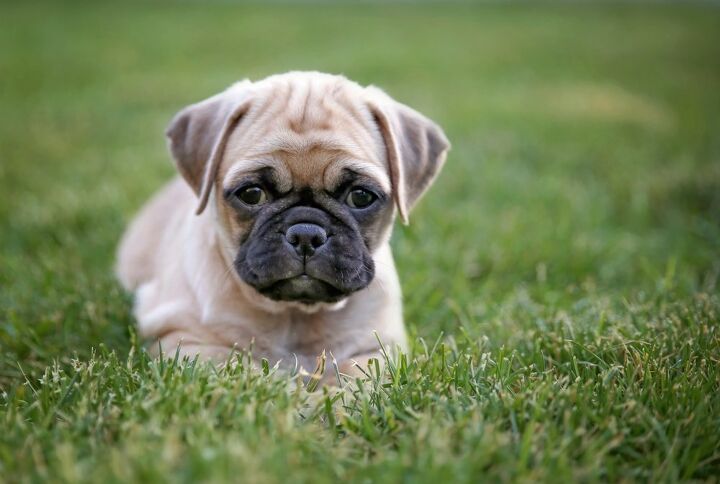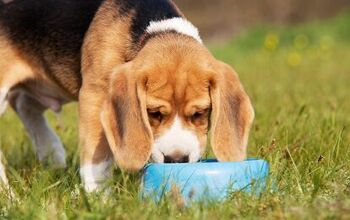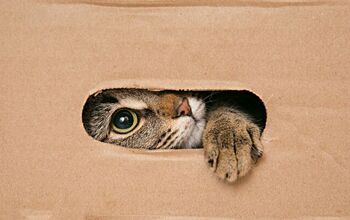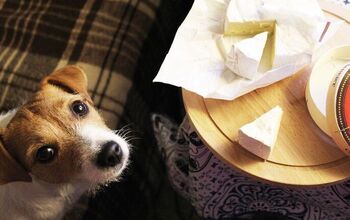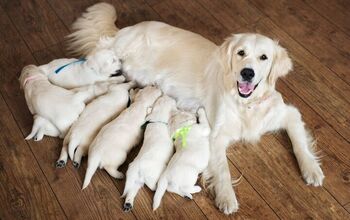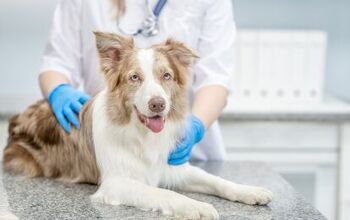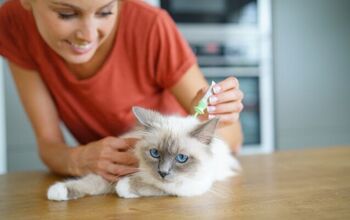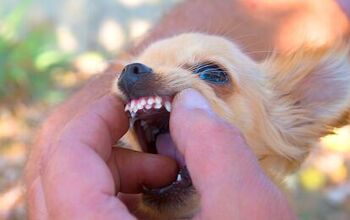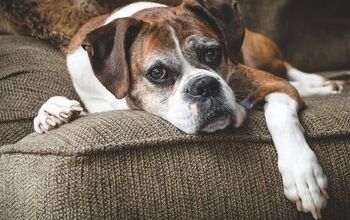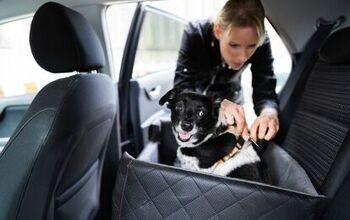Chug


About Chug
Some dogs are named after the tasks they were bred to perform or other animals that they resemble. Other dogs are named after drinking beer as quickly as possible. Different strokes for different folks, right? Fortunately, the delightful little Chug has many wonderful qualities beyond a unique name. If you can’t decide between a Pug or a Chihuahua, you may be able to get the best of both worlds with a crossbreed called the Chug. A popular designer dog breed, this spunky little dog has been stealing hearts left and right- and to no one’s surprise. The Chug comes from two very popular breeds that have been treasured companions for centuries. The compact size, charming attitude, and loving personality are all traits common for the mom and dad, and the Chug will inherit plenty of traits from both the Chihuahua and the Pug. However, this is a hybrid breed, so you can never know which breed will be the more influential one in the mix. Fortunately, you can at least guarantee that your Chug will be tiny and adorable.
Despite the unpredictability that is common with all mixed breed dogs, the Chug consistently proves to be a great companion for families of all shapes and sizes. Moderate activity needs and small size make these spunky pooches an ideal choice for apartment and condo dwellers. They pups are also well suited for retirees looking for a low-maintenance pet. The Chug can be a good candidate for a family pet, but only as long the children in the family are older and know how to be gentle with petite dogs. These dogs are fragile and as we all know, small children don’t tend to mix well with anything that can be labeled fragile.
In case you think that a Chihuahua and Pug mix sounds like your dream dog, read on to find if that’s really the case! Keep your eyes glued to this page and scroll away. All will be revealed.
If you can’t decide between a Pug or a Chihuahua, you may be able to get the best of both worlds with a crossbreed called the Chug.
The exact origins of the Chug breed are unknown because mixed breed dogs have been in existence for many years, but no one has bothered to document their development. Throughout history, there have probably been more than a few ‘accidental’ Chihuahua and Pug crosses, where the crossbreed litter wasn’t planned. That’s true of pretty much any hybrid dog.
Even when it comes to intentional crossbreeding of the two parental pups, there’s no clear information on when and where the Chug had its start. No breeders have stepped up to claim these adorable hybrids as their own, and the best guess is that this particular hybrid is no different than the majority of his designer dog friends. This means that the Chug was probably developed in the United States, sometimes in the last 30 years. Unfortunately, beyond that assumption no one really knows much about the origin of the Chug.
The Chug is a 50/50 mix of a purebred Pug and a purebred Chihuahua. This is a so-called first generation mix, and it is the most unpredictable type of hybrids. Chugs can look like Pugs more than Chihuahua or vice versa (or they can even look like be a balanced blend of both parents). There are no guarantees, even inside one litter, let alone the whole breed in general! Every Chug is unique and that’s part of the charm.
It is possible to have a hybrid with more or less than 50 percent of each parent breed in its heritage. However, multigenerational crosses are rare. That’s both because this is a fairly recent dog breed, and because a lot of breeders believe that further crossing with either of the parental breeds can cause certain health issues to pop up again. Developing designer dogs is tricky business and should be approached cautiously.
The Chug requires a high-quality commercial dog food diet that is formulated for his unique needs. Avoid cheap kibble that has no nutritive value and opt for those that use natural high-grade ingredients and have a good ratio of protein to carbs. These are all good rules of thumb for choosing any dog food for any pup. Additionally, your pet’s food should be appropriate for their age (puppies, adults, and seniors all have different dietary needs), size, and activity level. Small-breed dog formulas are a great choice, as they are specially designed to meet the high-energy needs of small, active dogs.
Another thing to pay attention to is the serving size. Don’t overfeed your Chug as these dogs are very prone to obesity. Usually, they need about a cup of kibble each day. So, split this into two servings to prevent overeating and bloating. Additionally, if you want to offer wet food or cooked meals for the sake of variety, be mindful of the caloric value. Using these foods as kibble toppers on a regular basis is another common cause for rapid weight gain in dogs
As always, it’s wise to consult with a veterinarian before making any major changes to your doggie’s diet. While dog food manufacturers and pet blogs provide useful guidelines for feeding pups, it should always be remembered that these are guidelines and not gospel. All dogs are different and have their own needs. Only your vet is qualified to determine the specific dietary needs of your personal pup. So always check in with your vet before settling on any specific food or portion size. Vets know best!
For the most part, this is an intelligent breed that typically responds well to training.
For the most part, the Chug is an intelligent breed that typically responds well to training. Positive reinforcement-based training methods are recommended and it is usually best to keep your training sessions short and fun so your dog doesn’t get bored. Start training early to prevent your dog from becoming willful and always maintain a firm and consistent hand in training. It’s important to maintain an alpha status throughout the training process, but even more important to avoid abusing your pooch. So always focus on positive reinforcement and reward based training. Only these techniques will yield the results that you crave from the training process.
The size of the Chug may vary slightly depending on breeding but, for the most part, you can expect an adult size between 10 and 20 lbs.
The temperament of a Chug will vary depending on breeding but, for the most part, you can expect some combination of Pug- and Chihuahua-like characteristics. In many cases, Chug dogs are animated and spirited, fond of playing with their owners and eager to make friends with everyone who comes their way. Like Chihuahuas, however, Chugs are also likely to be a little yappy. Early socialization is important with this breed to prevent problems with other dogs and children down the line. It’s important to establish yourself as the alpha and set behaviour standards early. Otherwise, your Chug may develop the dreaded ‘Small Dog Syndrome’ and nobody wants that (especially if you value your eardrums).
For the most part, the Chug is a healthy breed. In many cases, crossbred dogs are less likely to develop congenital conditions than purebred dogs simply because the gene pool is so much larger. That is not to say that the dog isn’t prone to developing certain conditions. Obviously, all breeds have the potential to be affected by a number of different diseases. Some of the conditions that may affect this breed include respiratory problems, eye problems, patellar luxation, and hypoglycemia. That’s why it is important to maintain regularly scheduled check ups with a vet, especially as your pooch ages into its autumn years. It’s vital that any potential health issue be identified and treated as early as possible.
The average life expectancy for the Chug breed is between 10 and 13 years.
As a small-breed dog, the Chug has only moderate needs for exercise. In most cases, little more than a 30-minute walk daily will be enough to satisfy those needs. However, depending how much Chihuahua blood is in him, your pup could be more energetic and have higher needs for play time to keep him occupied. If your dog doesn’t receive adequate exercise or mental stimulation, he may be more prone to developing problem behaviours and/or Small Dog Syndrome. Keep your dog well exercised to keep him well behaved. After all, if your dog is tuckered out, he won’t have the energy to get up to trouble.
Chug dogs are animated and spirited, fond of playing with their owners and eager to make friends with everyone who comes their way.
The Chug is not recognized by the AKC because it is technically a hybrid of two pure breeds rather than a new breed. This breed is, however, recognized by the American Canine Hybrid Club, the Designer Dogs Kennel Club, the International Designer Canine Registry, and the Designer Breed Registry.
Because both the parent breeds used to create the Chug have short and smooth coats, the Chug breed is the same. The color of your Chug’s coat could vary because while Pugs are primarily fawn-colored with black faces, Chihuahuas come in all kinds of colors. It is possible to have multiple Chug puppies within one litter that exhibit completely different colorations. Every Chug puppy is a surprise!
There is no set litter size for Chug puppies because it varies depending on the parent dogs used in the cross. It is possible for Chug puppies within the same litter to exhibit varying degrees of Chihuahua and Pug characteristics. This applies not only to their coloration, but also to their face and body shape. You could end up with two puppies having a Chihuahua-like body and a Pug-like face and another two puppies that look completely different. It’s impossible to predict precisely what any Chug puppy will look like, but it is guaranteed that it will be an absolutely adorable and lovable little pooch. He will be social, sweet, and fragile. However, due to those mischievous Chihuahua genes, Chug puppies must be trained and socialized as early as possible. Otherwise this could turn into a yappy monster with Small Dog Syndrome. So make sure to take your training responsibilities seriously and don’t let those precious impressionable early days go to waste! It will pay off in the long run.
Photo credit: KateSun/Shutterstock; Annette Shaff/Shutterstock

Kate Barrington is the loving owner of two cats (Bagel and Munchkin) and a noisy herd of guinea pigs. Having grown up with golden retrievers, Kate has a great deal of experience with dogs but labels herself a lover of all pets. Having received a Bachelor's degree in English, Kate has combined her love for pets and her passion for writing to create her own freelance writing business, specializing in the pet niche.
More by Kate Barrington



